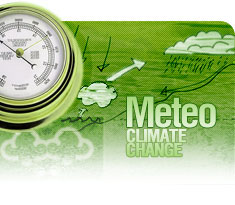https://unfccc.int/news/climate-adaptation-opportunity-to-build-a-better-world
Patricia Espinosa, UN Climate Change Executive Secretary has called on nations and stakeholders to utilize adaptation to climate change impacts such as storms or floods as an opportunity to build a better world for all.
Speaking at the closing ceremony of the fifth National Adaptation Plan (NAP) Expo in Sharm-el-Sheikh, Egypt, Ms Espinosa emphasized that adapting to climate impacts is as much an opportunity to build resilient economies and societies as it is to improving the state of the world.
"The issue of adaptation and resilience is extremely important and will continue to evolve. It's an issue that is not restricted to the developing world alone-it's a global issue. As 2017 showed us, climate impacts recognize no borders. As such, we need solutions from all nations, all levels of government, all businesses and investors, and from all of us on a personal level," she said.
The 2018 NAP Expo, hosted by the government of Egypt, aims to support countries to develop and implement National Adaptation Plans. The implementation of these plans will help countries become more resilient to harmful and potentially destructive climate impacts.
Read her full address, as prepared for delivery, here:
Ladies and gentlemen, thank you for participating in this Expo, which highlighted the tremendous progress being made, and opportunities for advancing the development agenda related to adaptation.
One word we heard repeatedly is urgency.
We know we have a very limited time to address climate change.
2017 made this perfectly clear-it was nothing less than a climate disaster for many people throughout the world.
We can discuss numbers and statistics, but while those give us facts, they can't convey what it feels like to have your home and nation destroyed.
This is what happened to Barbuda following Hurricane Irma.
Yesterday we heard just how difficult it was in the moving talk by Angela Burnett who shared her book, "The Irma Diaries".
And in Sub-Saharan Africa. How does one easily convey the impact of climate change on energy and crop production as rains and seasons shift?
Others throughout the world have similar stories.
This makes our work on adaptation and resilience even more urgent moving forward.
But I also commend you for addressing an important part of the adaptation story-and that is capturing opportunity.
...Not just opportunities to build new businesses and new economies through new and innovating projects, but the opportunity to build a better world.
It's a significant shift in the evolution of adaptation.
For example, the early National Adaptation Programs for Action-which were funded through the LDC Fund and managed by the Global Environment Facility-were project-specific.
They were excellent for their time and concentrated on Least Developed Countries. This was the model for 15 years.
But, because of the natural evolution of adaptation, the focus has shifted to a more long-term outlook. As a result, today many nations are strategically planning for the medium and long term.
This is significant for two reasons.
First, it reflects that adaptation and building resilience is not restricted to developing nations, but all nations.
Second, it allows policy-makers to align their national climate action plans with the overall UN sustainable development agenda.
By building safer, more sustainable cities, we are building a new, dynamic vision for the future.
Adaptation continued to evolve and grow at COP 23 in Bonn.
Fiji became the first island state to host the COP, and stressed the vulnerability of not only island states, but all people.
We saw movement on adaptation finance as well.
Specifically, the Adaptation Fund became a central part of the Paris Agreement and exceeded our 2017 funding target. That target was $80 million and we exceeded it by $13 million.
Was this progress? Yes.
Was it enough? No.
- I see it as a signpost-an important one-that we've reached on a much longer journey.
We've also seen progress via the Green Climate Fund, which is actively supporting countries as they develop adaptation plans.
In fact, the GCF approved more than $1billion in adaptation projects at their last board meeting alone.1
So, planning for adaptation is helping policy makers and community planners think about a wide range of solutions by taking a comprehensive risk management approach.
But we must still plan for contingencies, and we've seen progress in this area as well.
InsuResiliance was launched at COP23.
This program has two purposes: first, to enable countries to carry out more timely and reliable post-disaster response.
Second, it enables them to better prepare for climate and disaster risk using risk finance and insurance.
This global partnership was backed by $125 million from Germany, supported by other governments, and will cover 400 million vulnerable people by 2020.
We've seen similar approaches throughout the world, in the Caribbean and Pacific regions, and right here in Africa with the African Risk Capacity initiative.2
Momentum for new ideas is clearly growing and is all-encompassing, involving governments at all levels and non-state actors.
At the One Planet Summit in France, for example, we saw the launch of a new UN initiative, aimed at building the resilience of a million women and youth in the Sahel to the impacts of climate change.
The Summit also saw a milestone agreement signed between UN Environment and BNP Paribas.3 This agreement is aimed at raising development capital to drive sustainable economic growth in developing countries.
For example, it will support small projects related to renewable energy access, agroforestry, water access and responsible agriculture.
It's backed with capital funding of $10 billion by 2025.
Individual nations are also providing leadership.
For example, Fiji became the first emerging market to issue a sovereign green bond, raising $50 million(USD), to support climate change mitigation and adaption.
Ladies and gentlemen, the issue of adaptation and resilience is extremely important and will continue to evolve.
It's an issue that is not restricted to the developing world alone-it's a global issue. As 2017 showed us, climate impacts recognize no borders.
- such, we need solutions from all nations, all levels of government, all businesses and investors, and from all of us on a personal level.
We have much work ahead, but I'm confident, after seeing what you have accomplished here, we will keep the momentum going.
Thank you.



 Română
Română English
English


